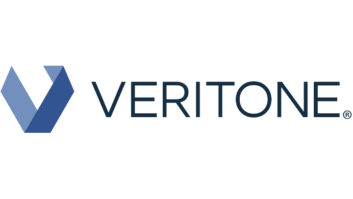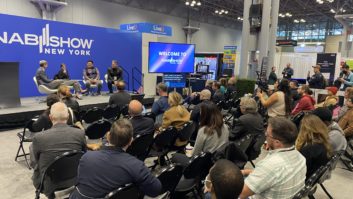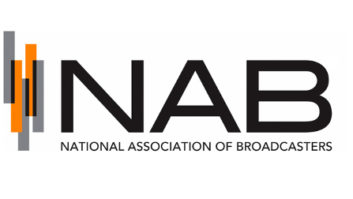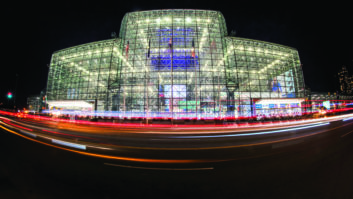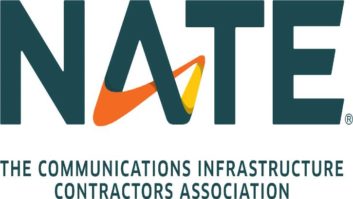Planning for the 2024 NAB Show is ramping up, and Radio World is asking exhibitors about their plans and expectations. Paul Cramer is the managing director of media and broadcast solutions at Veritone.

Radio World: What is the most important technology issue or trend for radio engineers and facility managers in 2024?
Paul Cramer: Certainly, one of the biggest trends is doing more with less. Budgets are tight and long gone are the days when the engineer was merely concerned with getting the program feed from the studio to the transmitter.
Today, the modern workflow of radio broadcasting involves the multi-modal distribution of audio: live/linear broadcasting, streaming, podcasting, on-demand audio and much more. The workflow and lifecycle of audio have now evolved. No longer does 100% of listening happen live. A majority of the listening happens over IP, on-demand and through multiple channels. The engineers find themselves at the nexus of managing this audio distribution for multiple listening audiences and numerous internal stakeholders.
These may include salespeople who need to recap campaigns and need airchecks, programmers who need to review show audio for talent coaching, production teams who need to create podcasts and social media teams who need to post segments to the stations’ social networks. Despite these evolutions, most engineers are still using their “grandfathers’ loggers”: time-stamped recordings of the on-air product.
A trend I see is more and more groups moving to “smart logging.” We help station groups do this by capturing the live broadcast in the cloud and then running AI models on the content so it’s immediately searchable and quantifiable. This democratizes the logged audio so every team that needs access can quickly log in through a web browser, use a keyword search, find the audio they need and then edit, download or repurpose it as their role allows.
RW: In what way(s) will AI-based tools change radio broadcasting workflows most substantially?
Cramer: AI is poised to help radio organizations get the most value from their content quickly and seamlessly. The two biggest changes we see happening in radio are the use of AI around advertising intelligence and content intelligence. AI is helping radio sales professionals generate proof-of-performance approaching the same levels that digital has: counting every ad impression inclusive of added value and earned media.
AI automates the recapping of campaigns and makes it possible to create a transactional business around non-spot advertising by tracking the impact of presenting sponsorships, billboards, endorsements and promos. AI is measuring and attributing the web lift that radio drives for advertisers, providing newfound metrics of success. On the content side, it’s creating better listening experiences by making it easy for on-air talent and producers to more quickly find sound bytes and audio segments to repurpose on-air, whether from their station’s archived audio or their sister station’s.
RW: What news will your company feature at the convention — any new products or services?
Cramer: At NAB, Veritone is making announcements around several innovations, one of which will greatly help our radio clients utilize our Attribute platform, which demonstrates the increases in web traffic and new visitors advertisers receive when they buy radio advertising. We’ll be launching a new feature called “Industry Insights” that will allow radio salespeople to see benchmarks across numerous advertising categories to discern how radio has helped other advertisers in those categories.
For instance, if an AE sells a car dealership a campaign, they will be able to see what the average lift delivered has been for other dealership campaigns. Similarly, it will be a powerful prospecting tool and a valid business reason for salespeople to get a meeting with target advertisers. Suppose a seller is looking to woo a home improvement contractor to advertise on the radio. In that case, he/she will now have industry benchmarks to show how radio helped other similar businesses in that category.
Veritone is also formally announcing its new “Custom AI Solutions” practice. While we have many turnkey applications that support the common business needs of the radio industry, the Custom AI Solutions practice allows us to scope, design, build and deploy custom and bespoke AI workflows, applications and analytics to meet the evolving needs of the industry.
RW: Are there any other important technology trends that you’d like to comment on?
Cramer: Certainly, you can’t read the news without seeing a headline about generative AI. It stands to be one of the greatest innovations in recent human history, but it’s still evolving. In the earliest days, AI was strictly being deployed for workflow automation: to automate mundane tasks so humans could focus on a higher and better use of their resources. In media, this has often been the automation and indexing of what’s said and seen in the broadcast. Generative AI will shift that paradigm from understanding to decisioning.
We have some clients we’ve been working with for nearly a decade. During that time, they’ve been using AI to index all of their content. Now, with Generative AI, we can start to use that large corpus of data to better understand what content drove the most ratings/engagement.
It can recommend what content to use in a story and even curate recommended clips. It can compare advertising engagement to content engagement. We’re really just at the bleeding edge and I expect to see more companies and applications tapping into GenAI in the future. It’s a new era of “big data.” That said, we believe the best use of Generative AI will be to amplify human effectiveness, not circumnavigate or replace humans.
RW: What else will you be watching for at the convention?
Cramer: Many are concerned about their future with AI, especially in the media and entertainment space, as we saw with the 2023 writer’s strike. AI can do many great things but never replace human creativity. We have always believed in the power of AI, but not at the expense of harming creators’ job security, cloning voices without permission or replacing humans.
In our view, AI is not replacing humans but supercharging them to do more than before. It is critical that as AI adoption increases, the technology is ethically and responsibly used. I’m pleased to share that Veritone is committed to the ethical use of AI technology through its “AI for Good” program, which is built on the guiding principles of security, compliance, trust, transparency and empowerment.





